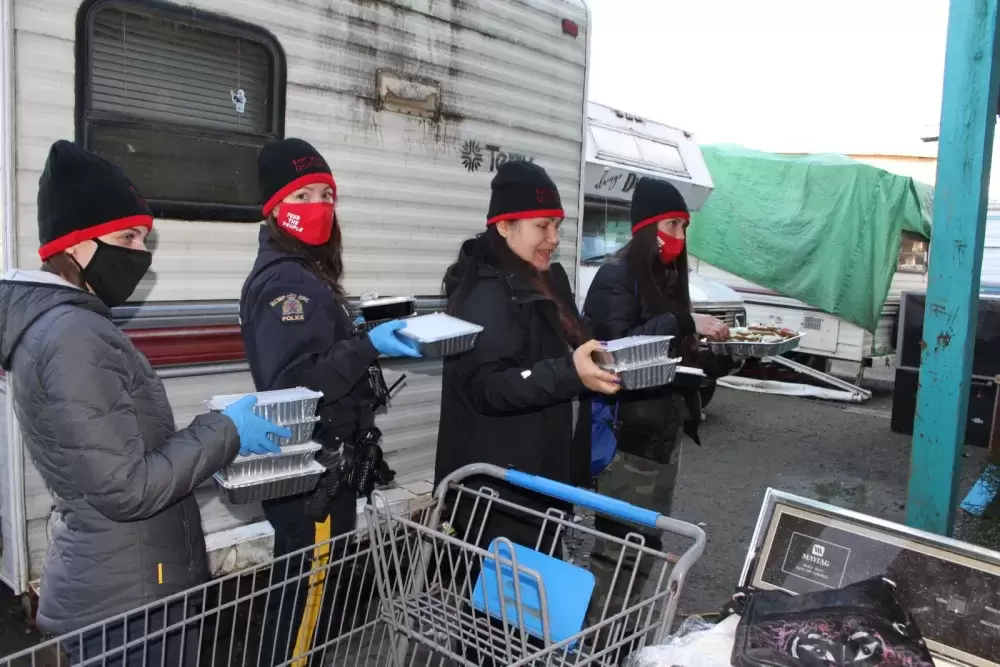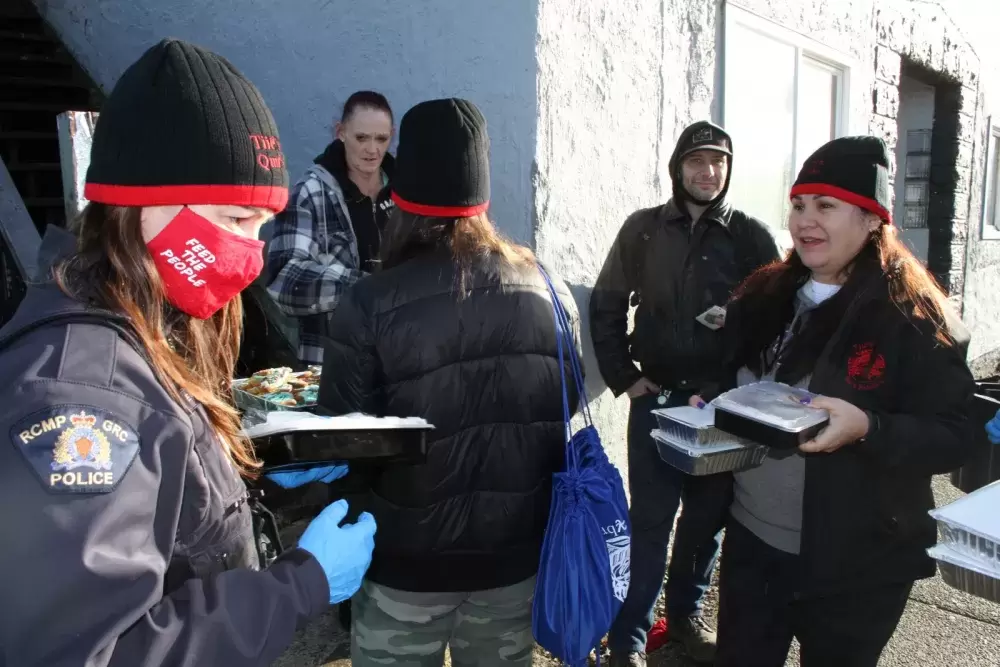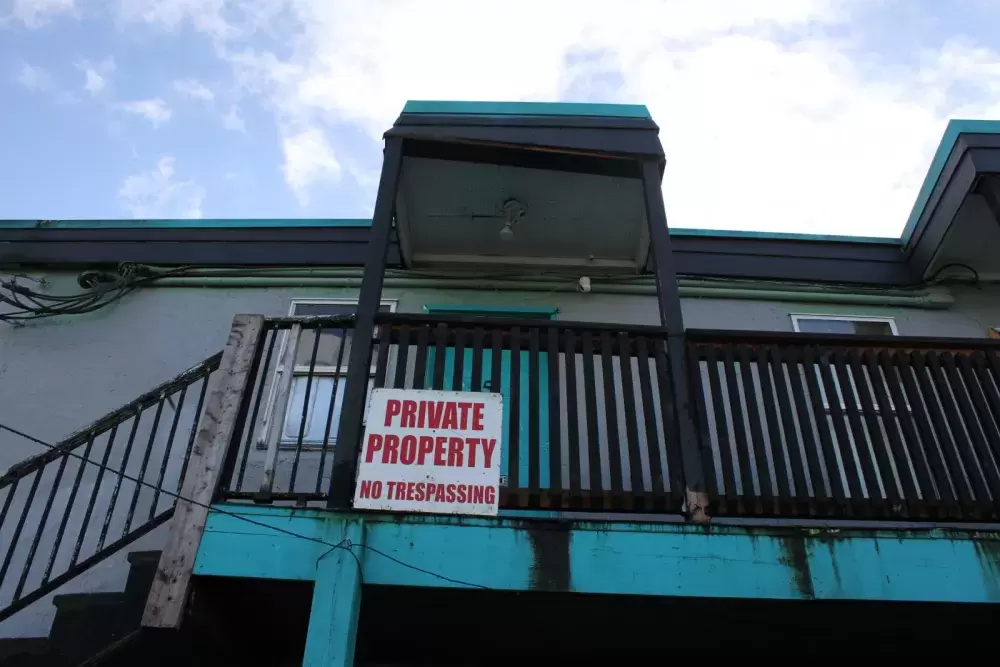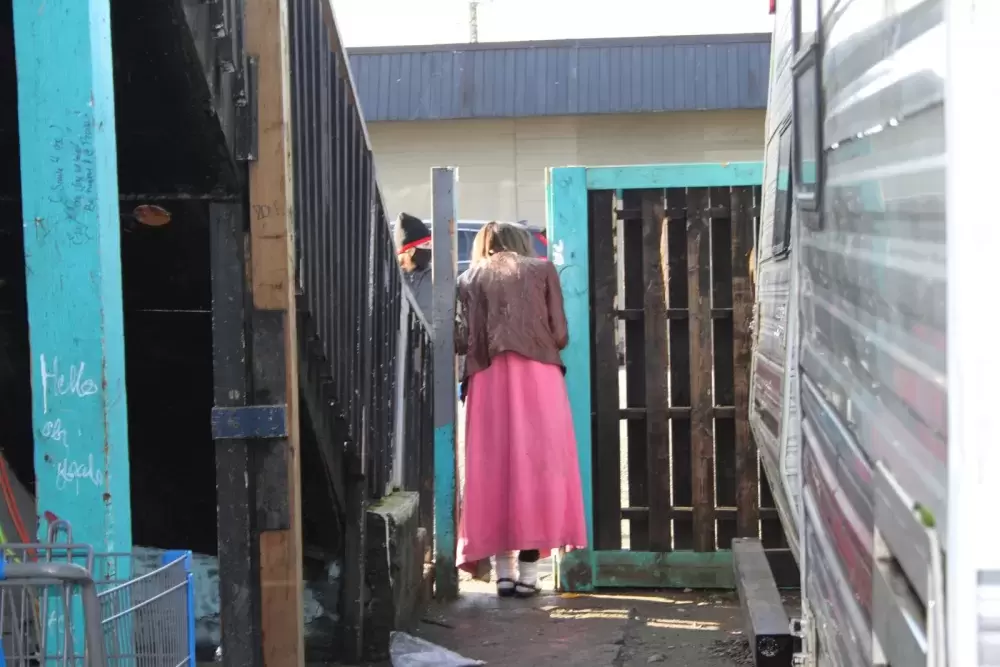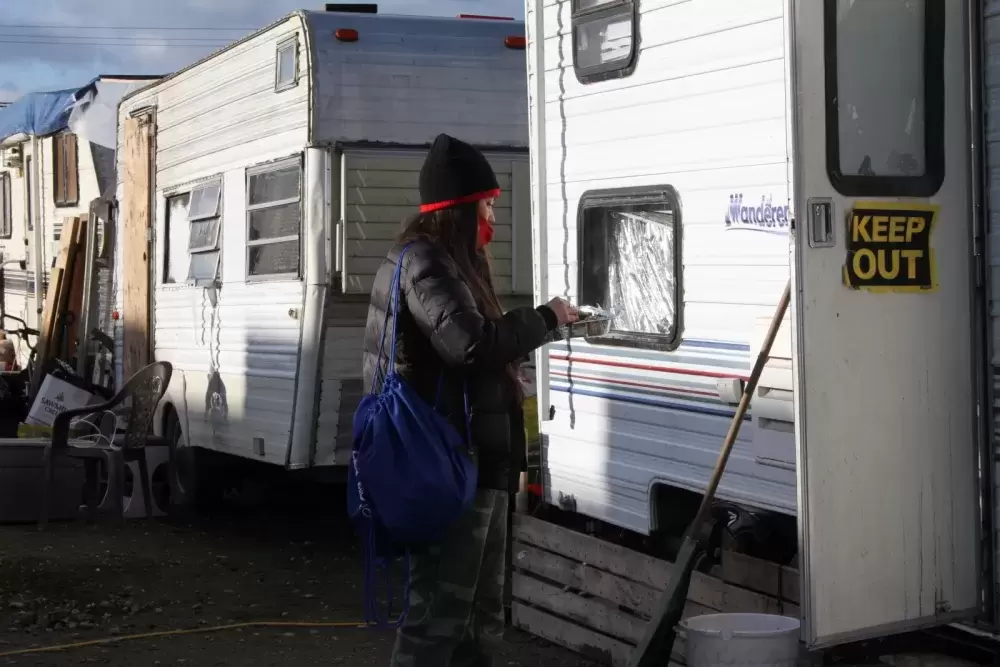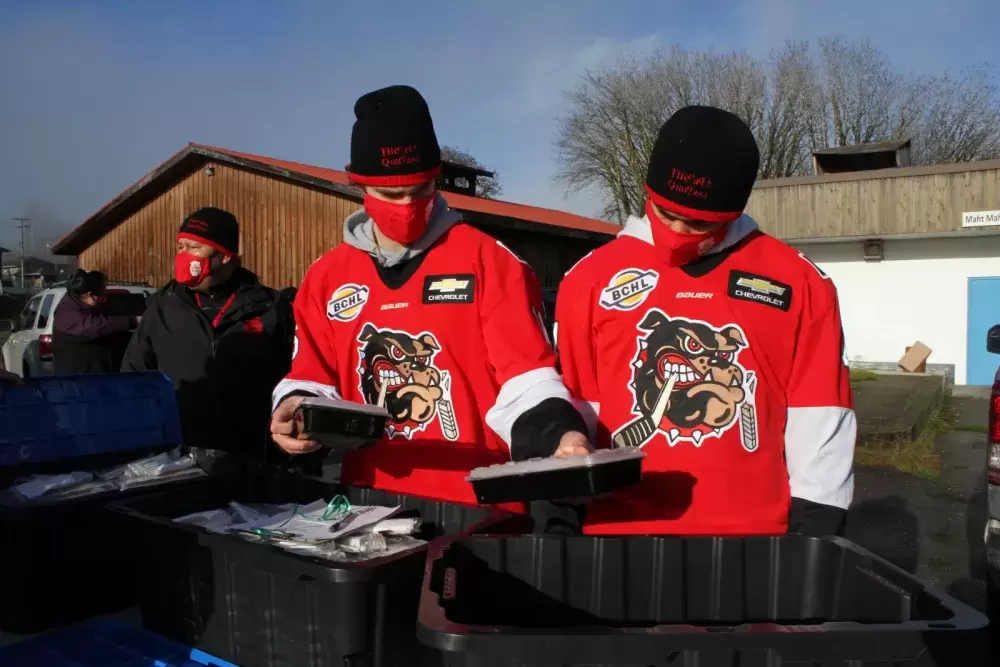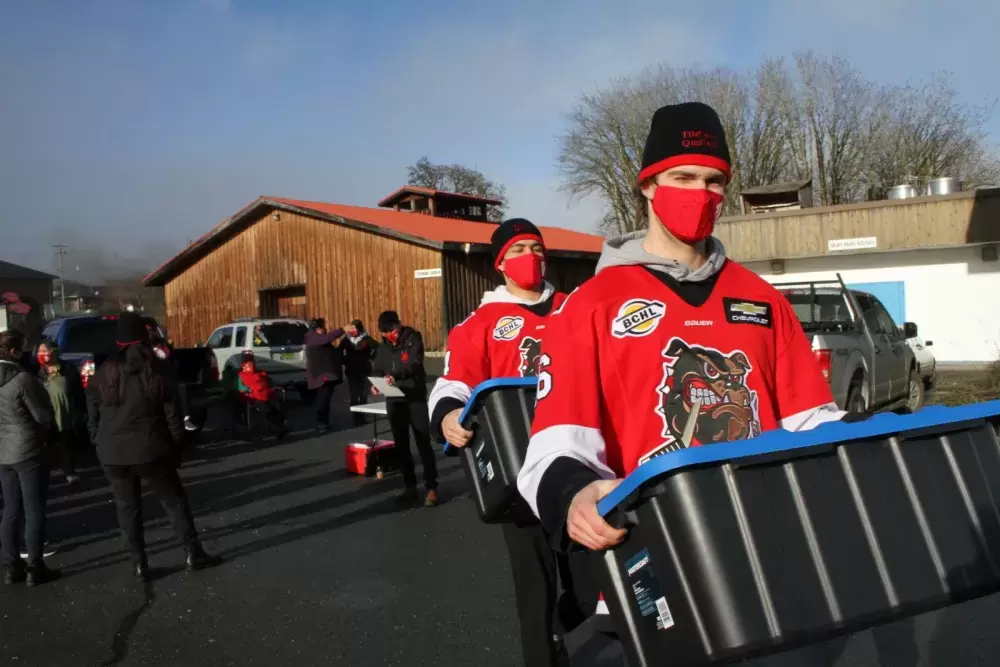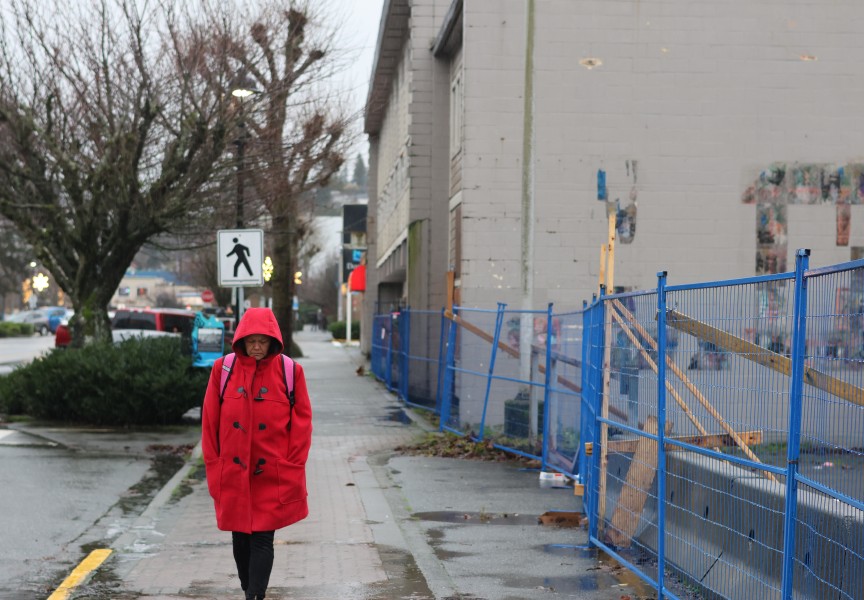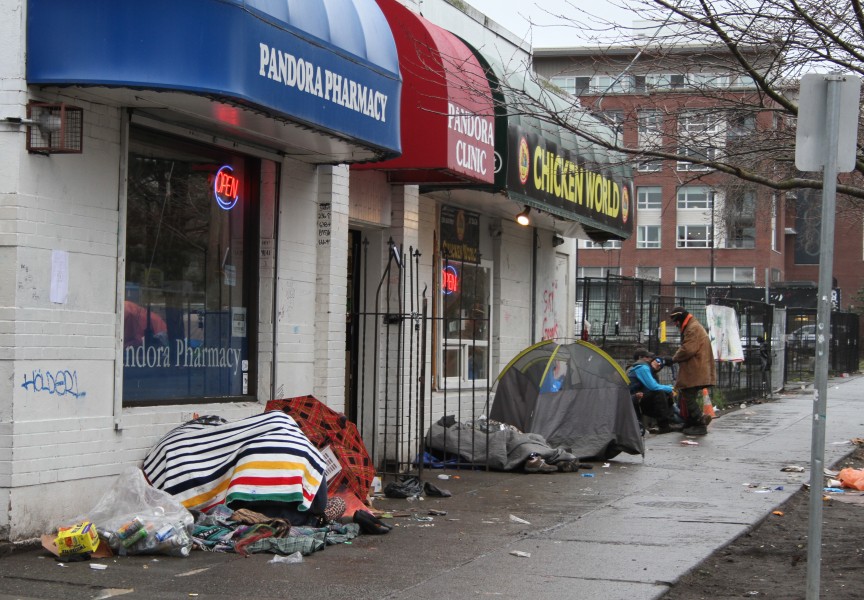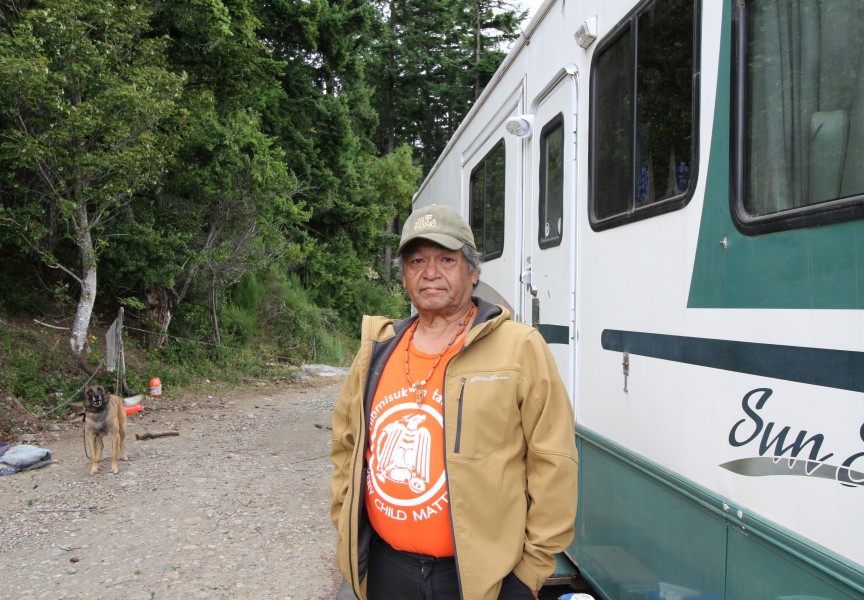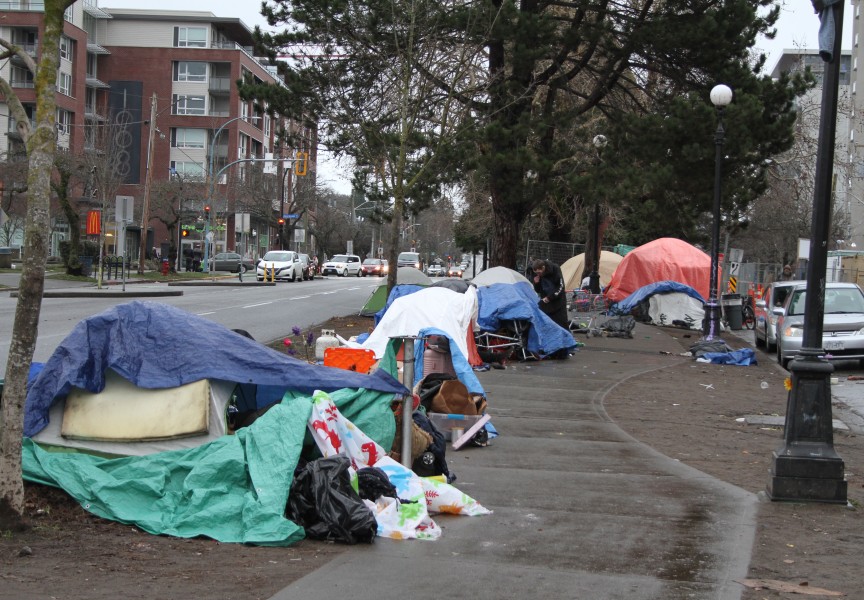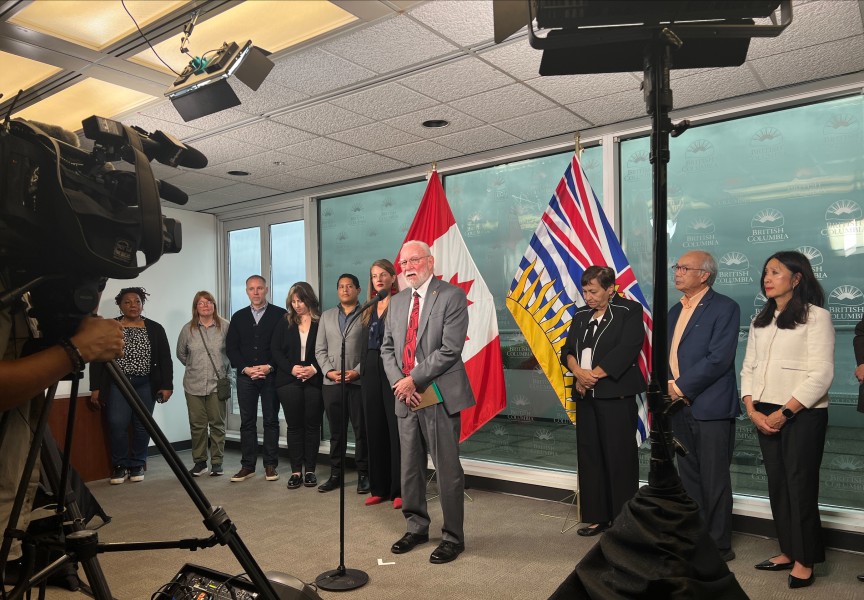Teechuktl’s Feed the People event brought meals to the streets today, with a focus on Port Alberni’s areas of highest poverty.
The Nuu-chah-nulth Tribal Council’s mental health department undertook the initiative for the 10th year in row, but for the second-year concerns over the spread of COVID-19 prevented the team from holding its usual indoor meal. With the help of donations from the community 400 meals were prepared, including hot turkey lunches cooked in the Tseshaht First Nation’s Maht Mahs kitchen.
The event was coordinated by Irene Robinson, a southern region outreach wellness worker with Teechuktl, who saw her team deliver more meals than expected.
“We got everything we needed this year, and more,” she said.
Staff gathered outside of Maht Mahs on Dec. 8 to deliver the meals to a long list of needy recipients compiled by the department. Volunteer help was also provided by the Alberni Valley Bulldogs BCHL hockey team, as well as members of the Port Alberni RCMP.
Police assisted in delivering meals to high-priority neighbourhoods on Third, Fourth and Fifth Avenue, including a growing collection of trailers set up on an empty lot next to a Fourth Avenue apartment building.
“Right from the very beginning, homeless and low income were the priority,” said Robinson.
This year’s homeless count indicated that a growing proportion of the city’s unsheltered are Indigenous. Although the total number of homeless declined in survey, the count shows that those who identified as Aboriginal rose from 48 per cent in 2018 to 65 per cent of Port Alberni’s homeless in 2021.
“When I wake up in the morning, if it’s freezing or snowing, the first thing I think of is our people on the streets,” reflected Robinson. “These people don’t have enough money to affords the rents in Port Alberni.”
Some of Robinson’s clients have shared that local services can be limited, including a young man she spoke with recently.
“He didn’t even go to the shelter because the shelter was booked,” she said.
The outreach worker attributes the longstanding effects of the residential school system for the prevalence of homelessness among Nuu-chah-nulth-aht in Port Alberni, as many are born into disadvantaged situations.
“That’s not just who they are. It’s where they ended up because of circumstances beyond their control,” said Robinson. “People end up on the streets, not because they don’t want to work, not because they’re lazy or alcoholics, they end up on the streets because they don’t have money.”

